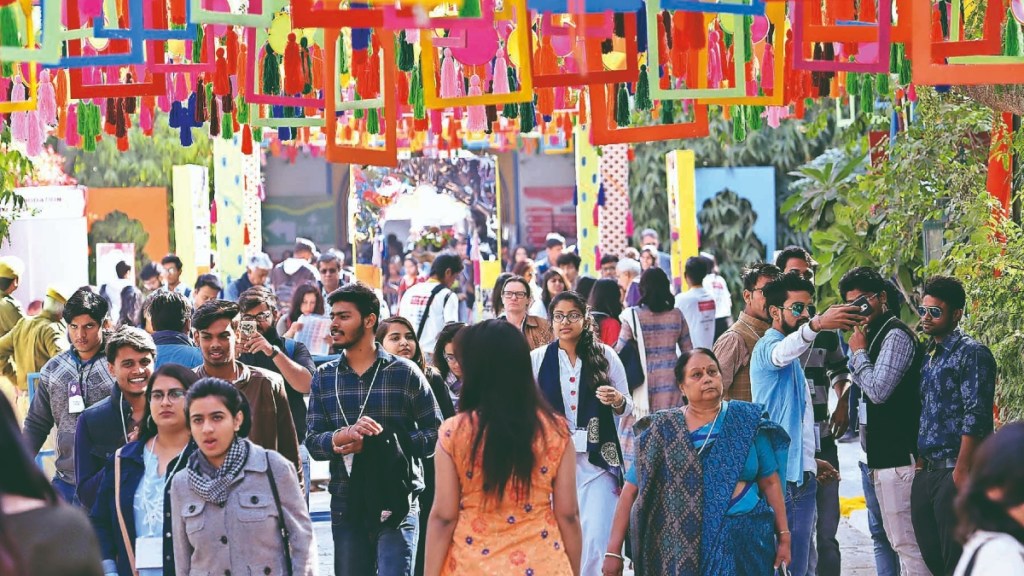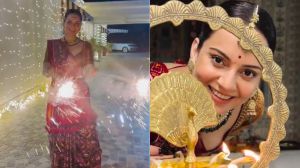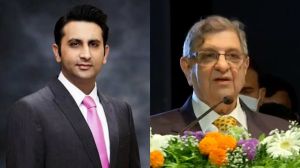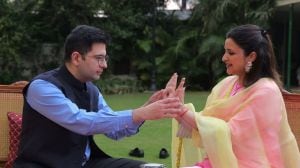We have about seven Pulitzer winners coming to Jaipur Literature Festival this year. We have as good of a lineup as we’ve ever had and very strong speakers in correspondence, history, non-fiction, and some great novelists,” William Dalrymple, historian and Jaipur Literature Festival’s co-director, tells FE at the festival’s preview held in Delhi.
The festival’s 18th edition is set to be held in Jaipur from January 30 to February 3. The festival’s lineup includes names like Abhijit Banerjee, Andrew O’Hagan, Cauvery Madhavan, Claire Messud, Esther Duflo, Geetanjali Shree, Ghaith Abdul-Ahad, Gideon Levy, Imtiaz Ali, Javed Akhtar, Jenny Erpenbeck, Maithree Wickramasinghe, Manav Kaul, Manu S Pillai, Matt Preston, Rahul Bose, Ranjit Hoskote, Susan Jung, Tarun Khanna, and Yuvan Aves, among others.
Dalrymple says, “I personally am most thrilled with Stephen Greenblatt, the world’s greatest Shakespearian and author of The Swerve; James Wood, the chief fiction critic of The New Yorker, and Katy Hessel, who is a phenomenal writer and feminist voice,” adding, “The wildest of wild cards this year is Miriam Margolyes, who was professor Sprout in in Harry Potter. I’m also excited about Benjamin Moser, who won the Pulitzer for his biography of Susan Sontag, David Nicholls, who wrote One Day, and VV Ganeshananthan from Sri Lanka, who wrote one of the strongest South Asian fiction books in recent years.”
Talking about the highlights of this edition, Namita Gokhale, the festival’s co-director, tells FE, “This edition tries to understand and make sense of our turbulent times—fractured by war and crises, yet making tremendous strides in technology and with new horizons for humanity.”
The festival also has a lineup for “middle Eastern programming to mark the genocide in Gaza,” says Dalrymple. Speakers include Nathan Thrall and Gideon Levy from Israel, Selma Dabbagh from Palestine, and Pankaj Mishra and Eugene Rogan.
“With 26 languages, 13 international and 13 Indian, the festival opens windows to many worlds,” says Gokhale.
Sanjoy K Roy, managing director of Teamwork Arts, which organises the festival, agrees with Gokhale. With sessions focussed around themes such as democracy, equality, gastronomy, and biographies and memoirs being discussed, Roy says, “This edition exemplifies the transformative power of books and ideas, building bridges across cultural and intellectual divides to celebrate our universal love for literature.” Roy adds that the idea behind this edition is to shift the narrative and move beyond the hatred that we see around us because of ignorance.
The festival has also collaborated with Nupur Sansthan, a disability services and support organisation, to bring on-board sign language interpretation sessions. The 12th edition of Jaipur BookMark, a publishing conclave, will also be held alongside the literature festival “with a focus on translations, storytelling innovations, and the role of AI in shaping the future of publishing.”
Ambassador of Norway to India, May-Elin Stener, says, “Norway has been the country partner at Jaipur BookMark since its inception more than a decade ago. As founding partners of the event, we are proud of the way the publishers’ forum has developed and its integration into the Jaipur Literature Festival.”









